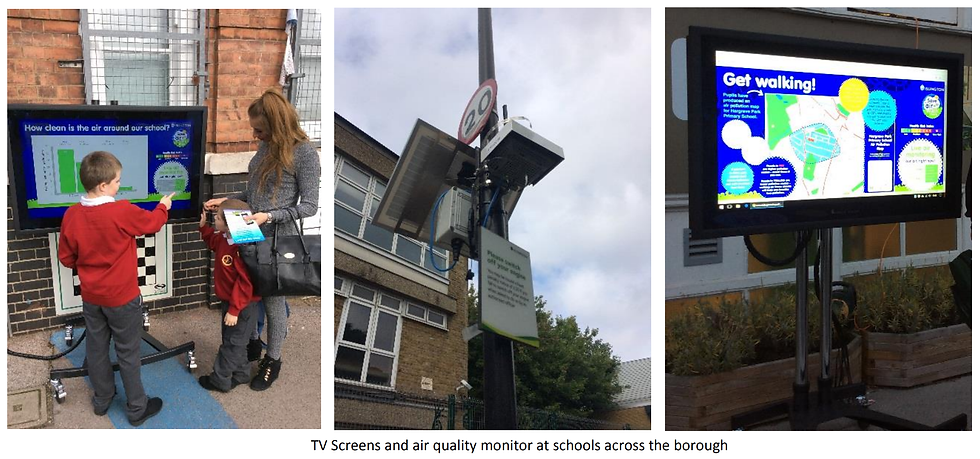Air pollution — Project Research
- Fisnik

- Mar 12, 2019
- 3 min read
Updated: Jun 9, 2019
Air pollution is one of the biggest issues of the 21st century. The majority of countries have taken responsibility for their actions and implemented plans to reduce their air pollution. An example is the Paris Climate Agreement. However, this is not enough. The City of London itself exceeded its annual air pollution limit in the first five days of 2017. This is completely insane! Whilst the world has taken big steps to reduce climate change, it isn’t happening fast enough. This project aims to introduce individuals to the issues of climate change and air pollution, exposing them, educating them in a same that is engaging and not just ‘hard facts’.
I began to conduct some research around the brief and found an interesting project on air pollution. Turning air pollution into pieces of art. This is similar to what I thought about durnig the task in class, how to make air pollition something people are in awe of. I thought art would be the only appropriate way to achieve this. Now that I have conducted further research, this has already been acheived - turning air polution into ink.
An MIT startup collected soot from the exhusts of cars and turned it into ink that can be used to create art.


This is a good project to get me thinking about what I could do. I see this project becoming very useful as an elements of protesting, grafeti found on walls.
I then began looking into projects by local councils. Islington Council has quite a lot of projects which aim at reducing air pollution. Some of them include restricting vehicle usage in areas by primary schools during certain times and days. 'Vehicles will not be able to enter the street between these times unless they have been given an exemption'. (Islington Council, 2019) This is a good short term solution in removing the harmful toxins in these areas. Whilst it's not the best solution as the vehicles are displaced to other roads surrounding the local community, so while the children from those primary schools aren't being exposed to the harmful toxins, someone else a few miles away is. Nevertheless, it is a step in the right direction.
Another project by Islington Council is introducing air pollution into the curriculum of schools so that children in Key Stage 2 are learning from a very young age. They are learning what air pollution is, how it can impact on their health and how they can help to improve air quality and the environment. One particularly interesting thing Islington Council has done is introducing an air quality monitor located at a school to show air pollution levels 24/7. The results of this monitor were displayed at the school on an information screen, along with other information on air quality and ways to lower exposure so that parents can see this information at drop-off and pick-up times.

This is similar to something I would like to produce for this project. It's informative, using real time data and draws conclusions. This above example has proven to work in terms of getting primary school children to interact and discuss air pollution. As the project with Rosie focuses on a more mature end user, I must figure out acceptable ways to entice this user groups to care and air pollution and promote change in their behaviour.
Reference List:
Islington.gov.uk. (2019). Schools projects | Islington Council. Available at: https://www.islington.gov.uk/energy-and-pollution/pollution/air-quality/air-quality-projects/school-projects#guide-sections (Accessed: 13 April 2019).
Islington.gov.uk. (2019). Islington Air Quality Annual Status Report 2017. Available at: https://www.islington.gov.uk/-/media/sharepoint-lists/public-records/environmentalprotection/information/adviceandinformation/20182019/20190103islingtonairqualityreport171.pdf (Accessed: 13 April 2019).
Bibliography List:
Matheson, R. (2019). Turning Air Pollution into Art. MIT Technology Review. Available at: https://www.technologyreview.com/s/610123/turning-air-pollution-into-art/ (Accessed: 12 March 2019).



Comments